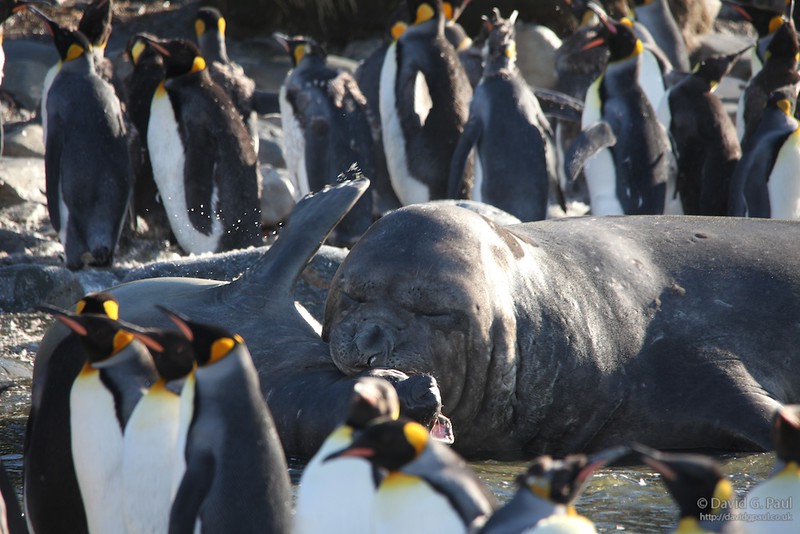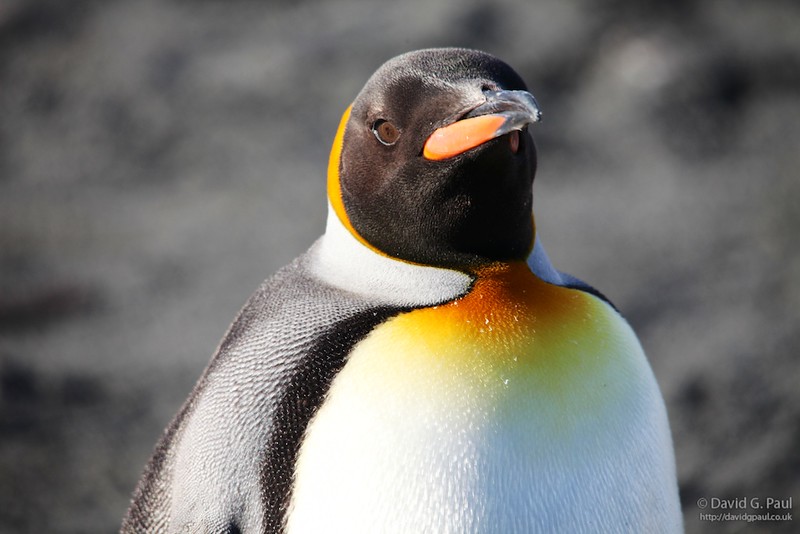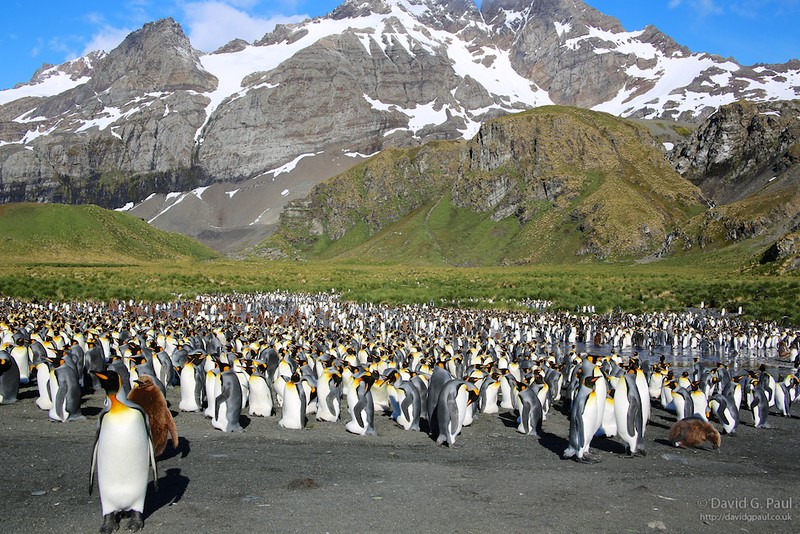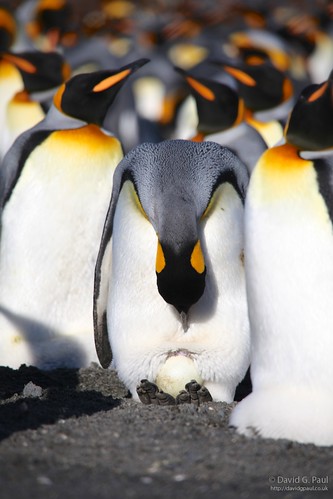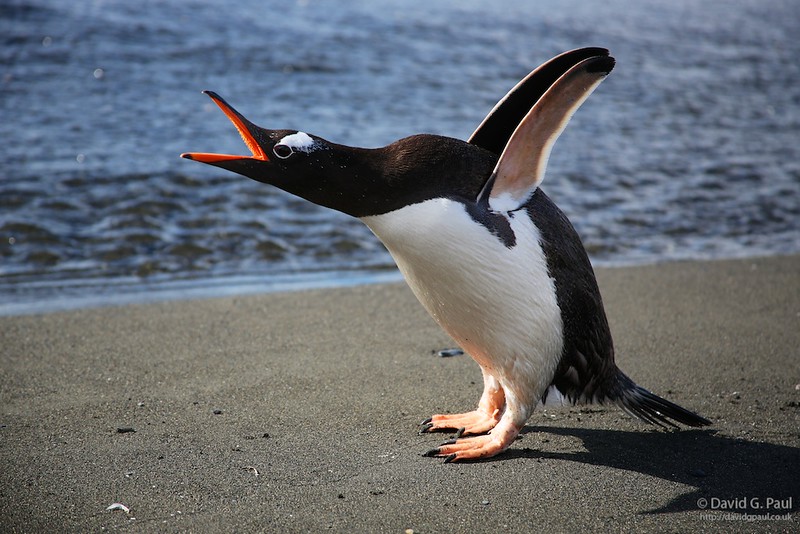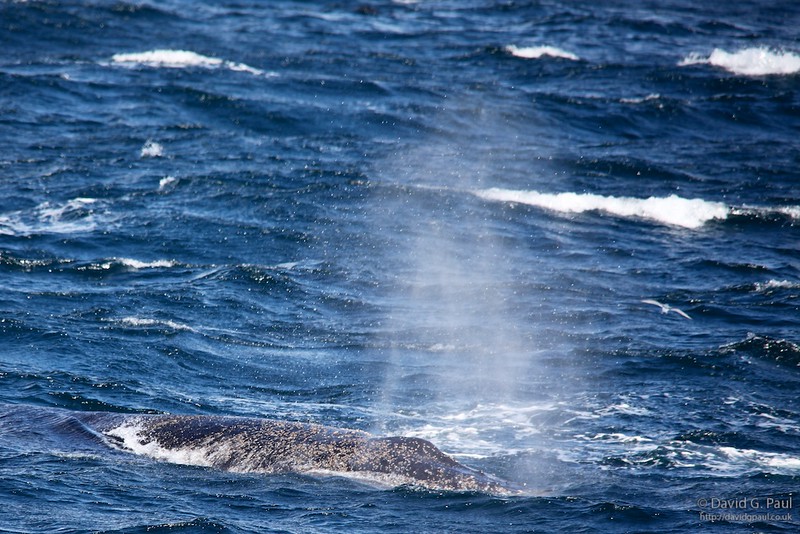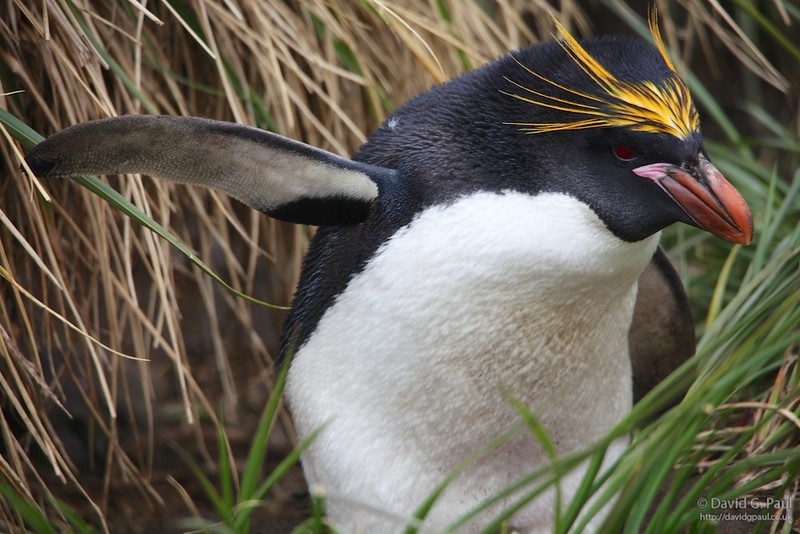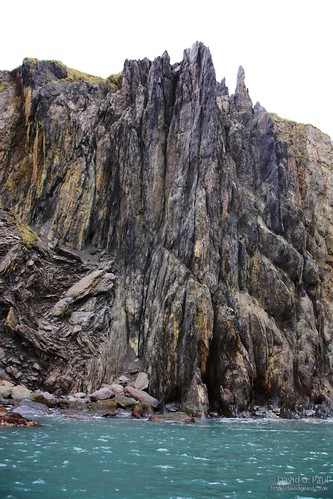This would be our last day at South Georgia – the next few days would gradually take us closer and closer to the continent of Antarctica. To make the most of the remaining time we had a wake-up call at 05:45 and got some pastries from the bar before setting off in zodiacs to Gold Harbour. This harbour is home to 25,000 breeding pairs of King Penguins, and also to Gentoo penguins and Light-mantled Sooty Albatrosses.
At 06:30 we headed ashore, though apparently it came close to being cancelled despite there being a clear blue sky and a calm sea, because there was almost too much wildlife on the beach. To safely navigate passed the Southern Elephant Seals there were markers laid out by the guides so we could weave through those that were sleeping. As we wound through we did occasionally see some of them fight – they really are a big and imposing sight to see them fight.
Eventually we made it through, slowly, to the King Penguin colony. This colony seemed amazingly massive and some of them on the outside occasionally exposed the egg that many of them had resting on their feet. All around the beach were impressive mountainous glaciers, the runoff from which had created a freshwater stream that ran down to the sea. In the stream were some of the juvenile penguins.
Amazingly it was warm enough to only need a baselayer, so much so that the expedition leader was sunbathing at the beachhead whilst everyone else was busy admiring the landscape and the wildlife. It was then a nice easy boat ride back to the ship for breakfast.
On the way to our next stop we came across a pod of three young humpback whales, though they were still about the same size as the Southern Right Whale we saw previously. Whilst we were busy standing out on deck in the cold trying to photograph these whales there were also penguins swimming passed the side of the boat – they must have been going at quite some speed to overtake us! Eventually the whales disappeared into the distance so we could head back into some warmth. I would have gladly stayed outside longer though if the whales had stuck around.
It took a couple of hours to move along the coast to the tip of the mainland at Cooper Bay. From where we stopped we could see a nearby island also, though it was the mainland we headed to by zodiac. To speed up this visit half of the passengers went on a cruise whilst the rest went to the shore. As we were on one of the early boats we headed to shore first. As we got off a chinstrap penguin waddled past, but disappeared into the sea before I could get my camera ready. This was the first one we’d seen, but was hopeful that we’d see more.
We then hiked up a stream and through some very muddy ground until we arrived at number of Macaroni penguins. This bit felt rushed as it was pretty much like being on a conveyor belt to take photos. It was so muddy that at one point I sank in it almost to the top of my rubber boots. It was hard work getting out of it without losing the boot!
When we were back on the zodiac we then went out on a cruise to explore some of the nearby coast. This was so slow going due to swells causing some fairly large waves. Eventually we made it passed some Chinstrap and Macaroni penguins sitting on bits of rock in the sea, and on to some pretty impressive rock formations that reminded me of “The Gates of Argonath” out of The Lord of the Rings, especially because we were on a small boat.
The ride back was a fairly wet one as this time we were against the current, though it was still nowhere near as wet as some of the days around the Falkland Islands. Once we’d boarded the ship it was time for dinner and to set off on our voyage to the Antarctic peninsula.
In the afternoon we passed Cape Disappointment, named such by Captain James Cook when he realised what he found was not the continent he was expecting. Not long after there was a lecture on the Whaling history of South Georgia and Antarctica. During this we were shown a video produced at the time that whaling was happening, which talked about the processing of them and the uses they had. It seems such a disgrace that nations could allow this to happen after whales were driven to such rarity in the North previously. It’s even more unbelievable that some nations continue to illegally hunt whales today.
Later in the afternoon we saw some truly massive icebergs on the horizon, the first of many we expected to see over the next few days. A while after this there was a recap going over the past few days events. The first part of this discussed Southern Right Whales which one has been known to have lived for at least 120 years, dated due to a piece of a harpoon found lodged in it. We were also told a little about the geology of the area and the plans for the next few days at sea.
The evening meal was reindeer steaks, svetsle, a type of pasta, followed by creme brulee. I was hopeful for an early night to get some rest after a long day, but the neighbouring cabin was pretty noisy.
